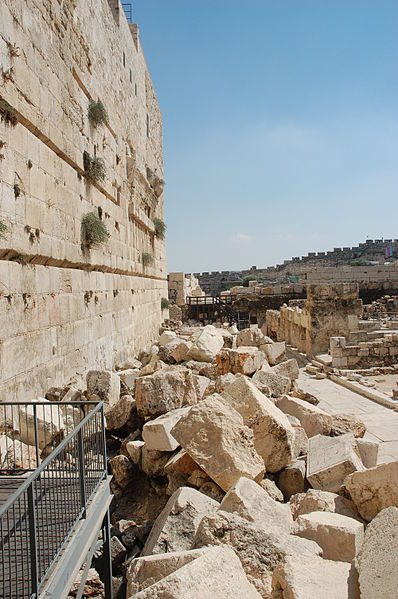
(Wikimedia Commons public domain image)
When you visit the area of the Temple Mount in Jerusalem, which is utterly free of traces of the famous Temple of Herod, and when you see the massive stones crashed around the southwestern corner of the Temple platform, you realize something of the effort that the Romans made to ensure (though they didn’t know that they were fulfilling prophecy) that no stone of the Temple itself would be left atop another.
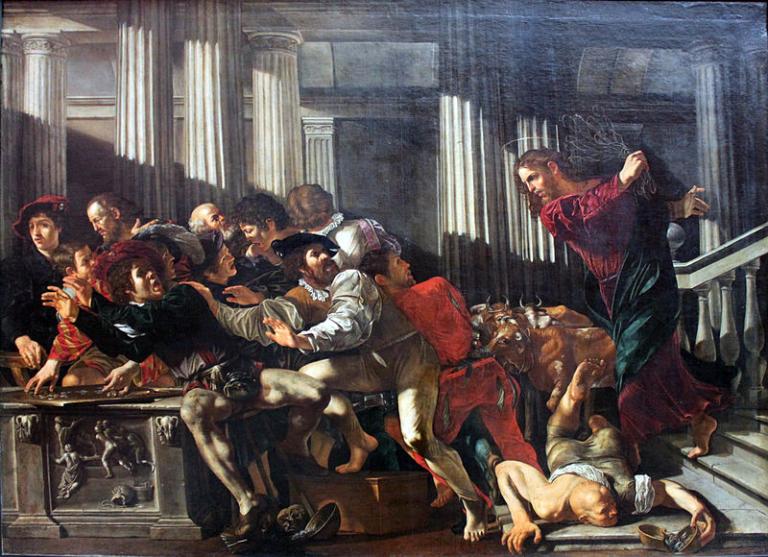
Wikimedia Commons Public Domain
Compare Mark 11:11; Luke 19:39-40, 45-46; 21:37
Some speak of Jesus as someone infinitely accepting of all lifestyles, never condemnatory, never excluding anybody. This Jesus does not seem to appear in the New Testament.
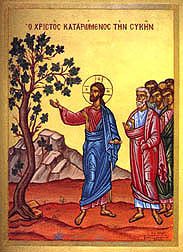
(Wikimedia CC public domain)
Compare Luke 13:6-9
Some have seen in this strange little episode a fit of unreasonable pique on Jesus’ part. But that isn’t so. Here’s a concise explanation of what the story means:
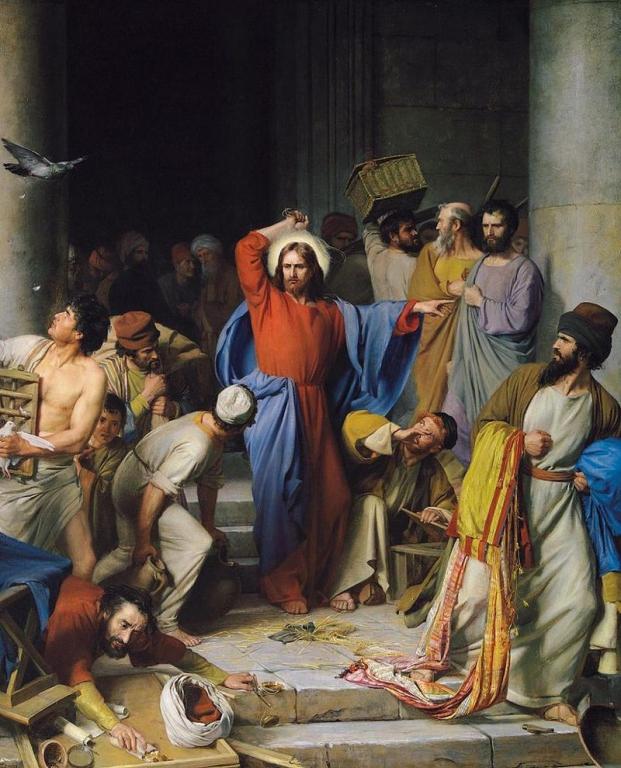
(Wikimedia Commons Public Domain)
Compare Matthew 21:12-13; John 2:13-17
Once more, the ever-accepting, totally non-judgmental Jesus asserted by some seems to be completely invisible in the New Testament.
Obviously, we can’t use his example here to charter our own harsh behavior toward those of whom we disapprove or with whom we disagree. Jesus was the Only Begotten Son of God, the Messiah, and the Redeemer. He was morally perfect. We aren’t. Thus, we lack not only the authority but the standing.
But it seems clear that the notion of Christianity as a vague thing without standards and unable to form judgments has no basis in the gospel accounts of the life of Christ.
Incidentally, the harmony that I’m following — Kurt Aland, Synopsis of the Four Gospels: Greek-English Edition of the Synopsis Quattuor Evangeliorum, 14th ed. (Stuttgart: German Bible Society, 2009) — makes this a separate entry (273) from entry 271 (above), for reasons that aren’t immediately clear to me.
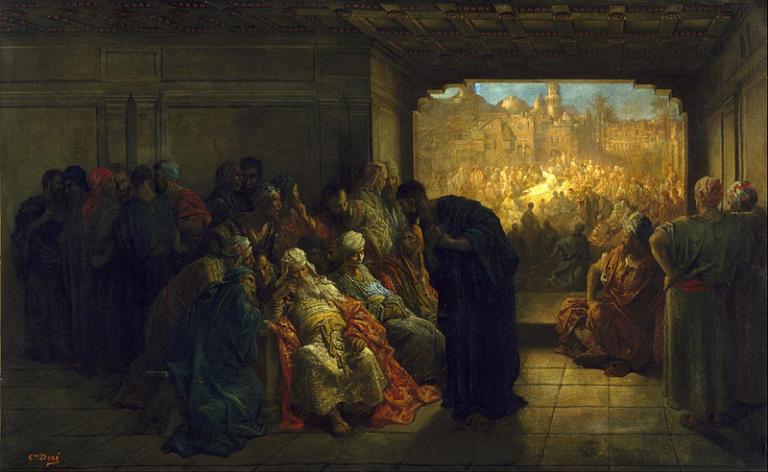
Compare Luke 21:37; John 8:1-2; 11:45-53
Jesus is forcing a confrontation with the Jerusalem elite. He’s challenging them. His raising of Lazarus and his cleansing of the temple, in which he’s now teaching, have made him more and more public, and they have no choice but to react. Of course, they could have accepted him. That would have been one reaction. But they chose another path.
Posted from Jericho, Palestinian Territory










